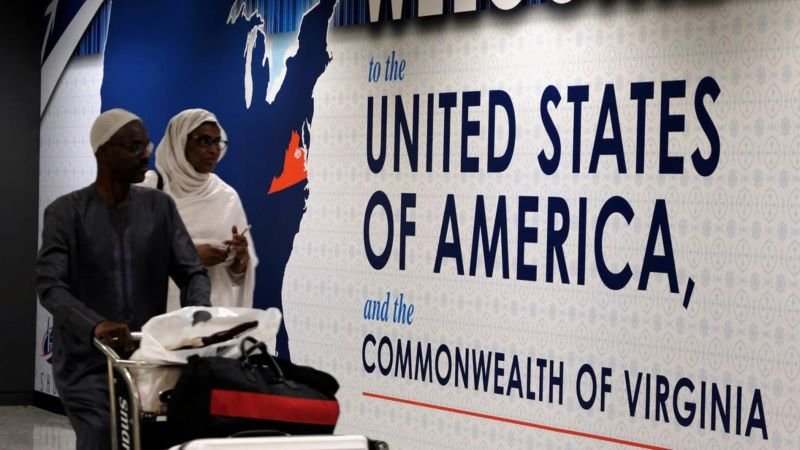IN a stern warning aimed at reinforcing compliance with student visa regulations, the United States Mission in Nigeria has cautioned Nigerian students against violating the terms of their F-1 and M-1 visas, warning that such breaches could lead to visa revocation and future ineligibility for entry into the U.S.
News Point Nigeria reports that the advisory, issued via the Mission’s official X (formerly Twitter) handle on Monday, is the latest in a series of statements reflecting Washington’s tougher immigration stance toward international students, particularly from high-volume nations like Nigeria.
“If you drop out, skip classes, or leave your program of study without informing your school, your student visa may be revoked, and you may lose eligibility for future U.S. Visas,” the U.S. Mission wrote in the post.
“Always adhere to the terms of your visa and maintain your student status to avoid any issues.”
The message comes amid growing concern over visa overstays and immigration fraud, with U.S. authorities stepping up monitoring and enforcement of international student activities across American colleges and universities.
This renewed warning aligns with broader efforts by the U.S. government to streamline and enforce stricter compliance among international students. In recent years, the U.S. Department of Homeland Security (DHS) has pushed through several policy changes aimed at tightening student visa rules.
These include: mandatory disclosure of social media handles during visa applications, removal of privacy settings for vetting purposes and proposed caps on maximum duration of stay (2–4 years) for student visas.
A controversial push to eliminate Optional Practical Training (OPT), a post-graduate work programme widely relied upon by foreign students to gain industry experience in the U.S.
The OPT programme has often served as a pathway for long-term residency for many Nigerian students. A rollback would have a significant impact on the nearly 17,000 Nigerian students currently enrolled in U.S. institutions making Nigeria one of the top African sources of international students in America.
The message has triggered strong reactions from Nigerians on X, with many accusing the U.S. Mission of using coercive language and creating fear among genuine students who may be forced to adjust their academic journey due to unforeseen circumstances.
Some users argued that changing academic programmes or even withdrawing from a course of study is not inherently a violation of visa terms, provided it is done with proper documentation and institutional approval.
“Dropping out isn’t a crime if reported properly. This is fear-mongering,” one user, bunmimat wrote.
“The US Embassy should focus on supporting legal travel, not turning itself into an instrument of intimidation,” another, kemkemapparel added.
Under U.S. immigration law, F-1 and M-1 visa holders are expected to maintain full-time enrolment, attend all classes, and report changes in academic status, including transfer, suspension, or withdrawal to their designated school officials (DSO), who in turn must update the SEVIS (Student and Exchange Visitor Information System) database.
Failing to maintain this status could result in automatic termination of visa validity, making the student subject to removal and ineligible for future entry.
Still, immigration lawyers have clarified that the onus is not only on compliance but also on communication.
“The student has a duty to stay in legal status but they also have a right to make changes within the rules,” a U.S.-based immigration adviser told News Point Nigeria.
While the U.S. government insists that the recent messaging is a reminder of standing policy, many Nigerians view it as part of a growing pattern of visa-related pressure, particularly as Washington seeks to balance immigration control with international student intake.
As it stands, Nigerian students in the U.S. are advised to maintain active communication with their institutions, document all academic decisions, and avoid any actions that may jeopardize their visa status.







